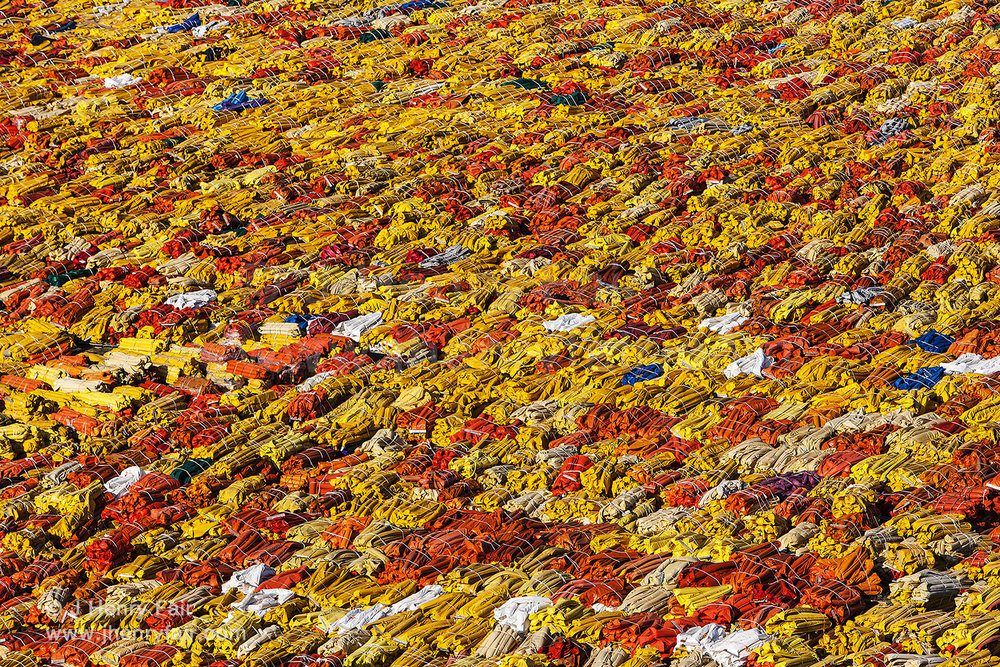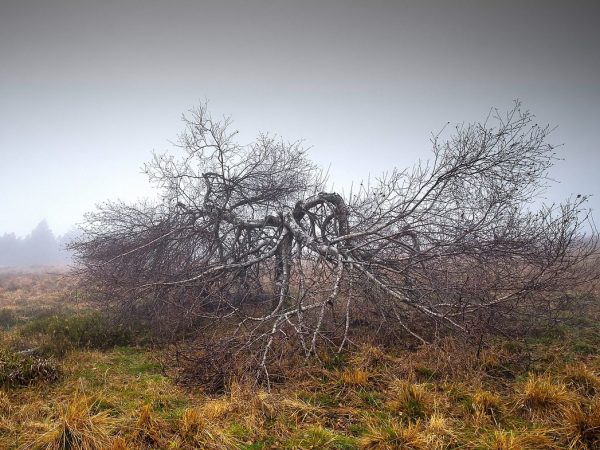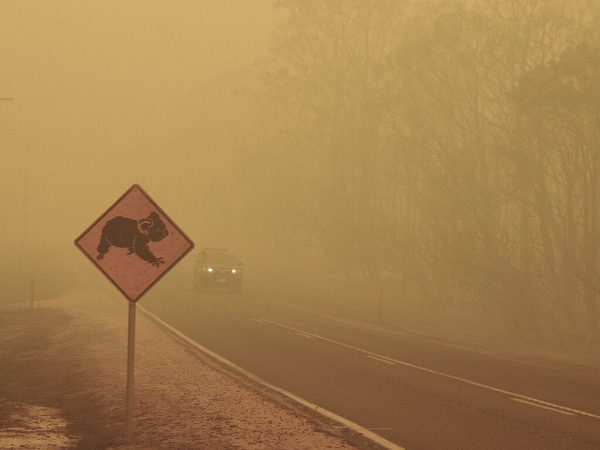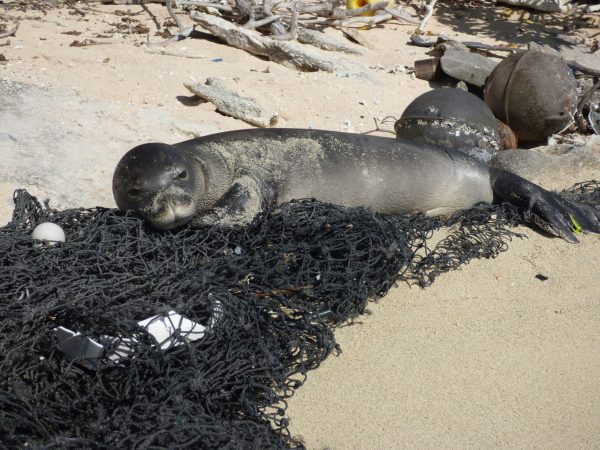This article was originally published on Tricycle. It is reprinted here with permission.
Eco-anxiety and grief are on the rise, especially among young people. In a 2021 multinational survey of 10,000 16- to 25-year-olds, 59 percent were “very worried” or “extremely worried” about climate change, many saying it made them feel sad, anxious, angry, powerless, helpless, or guilty. That the environmental crisis is having such a powerful psychological impact on people is not only its own cause for concern, but also, according to climate psychologist and organizational strategist Renée Lertzman, something that needs to be addressed if we are ever going to take meaningful environmental action.
Lertzman first became interested in the psychology of environmental collapse following an environmental studies class at the University of California, Santa Cruz. “I found the content of the class so deeply distressing,” she says, “but I was equally distressed by the bizarre dissociation I was seeing all around me.” During this time, Lertzman came across a book that would sharpen her life’s focus: Despair and Personal Power in the Nuclear Age by Joanna Macy, which underpins Macy’s eco-Buddhist network, The Work That Reconnects. This discovery inspired Lertzman to spend a summer meditating at Karmê Chöling, the Shambhala retreat center in Vermont. “At that point it was clear to me that I was going to translate a lot of Buddhist ideas and practices into formats that would be accessible for people who aren’t going to attend Buddhist workshops.”
Pursuing this mission to translate Buddhist ideas for environmental initiatives led Lertzman to obtain first a master of arts in environmental communications at the University of North Carolina at Chapel Hill and then a PhD at the Cardiff University School of Social Sciences in the UK. Today Lertzman shares her ideas about climate psychology through speaking engagements—she gave a popular TED Talk in 2019 on “How to turn climate anxiety into action”—and by consulting with businesses, nonprofits, and governments, including Google, World Wide Fund for Nature (WWF), and the White House.
To my mind, every single Buddhist teaching that I encounter relates precisely in some way or another to how to live today and confront our ecological crisis. Every single teaching does this.
Sam Mowe: What do you suggest for people who are struggling with eco-anxiety?
Renée Lertzman: Whether you call it eco-anxiety, climate distress, or something else, it’s powerful for us to have language to name and acknowledge the phenomenon of having an emotional, existential response to what’s happening with our planet and climate. And those responses point to another question: what does it mean to be human during a time when we have become aware of what we as humans have done to life on the planet? For some people the response to what is happening may be anxiety, for others it may be a form of despair. Others might feel a combination of the two, or it might show up as ambivalence. Or extreme rage, anger, a sense of betrayal. But what matters is to be able to acknowledge the experience you are having, because it’s part of the feedback system for registering what’s happening in the world.
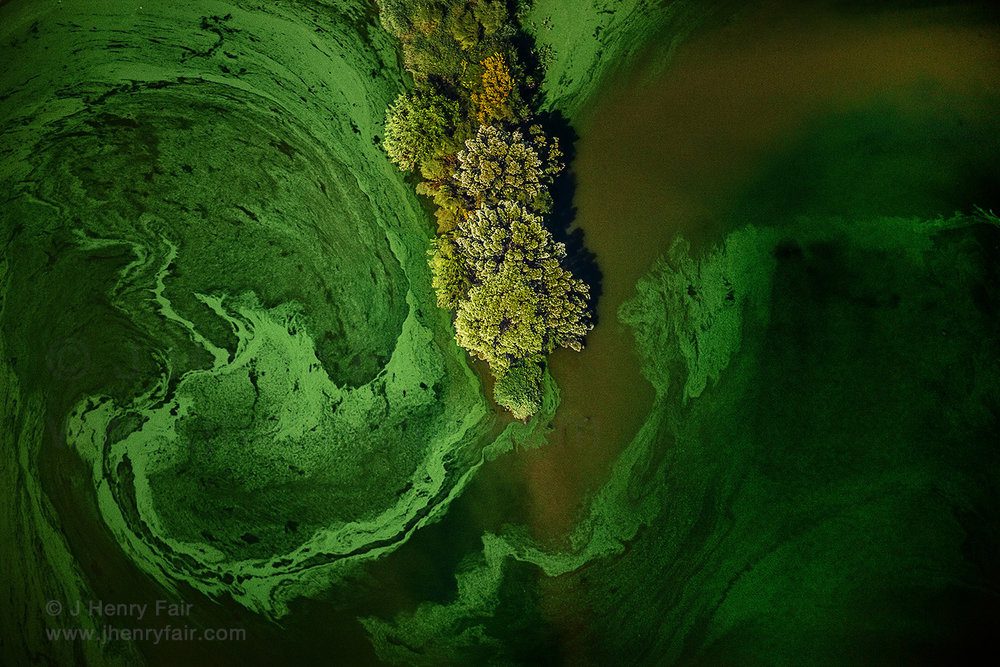
Once you have named your response, it’s so important to meet it with compassion, acceptance, and curiosity. Of course, it’s really hard to do that. Twenty years ago, when I started trying to understand the psychology of environmental crises, I noticed that a lot of people were feeling like there was something wrong with them if they had an experience like eco-anxiety. They would feel like it wasn’t normal, that they were being highly sensitive, or that it was a sign of weakness. Or they would get pulled into a sort of manic, frantic response to try to manage those feelings. When talking with people back then, all over the world and from many backgrounds, I’ve been struck by the level of internal policing that goes on. And then, of course, when that happens, we inadvertently police each other, and it’s a downhill spiral from there. And one of the things that I’ve learned from a number of Buddhist teachers and psychologists is that when we attack and critique our experience, we’re really wasting precious energy. Trying to manage or push away a feeling is an energy drain, right? Alternatively, we can practice bringing an attitude of compassion, and even appreciation, to environmental and climate distress because it’s a powerful indicator that you’re conscious. Experiencing eco-anxiety means that you’re able to register the signals from the system. Joanna Macy has highlighted this for decades, how each of us is part of the feedback loop. So it really starts with turning toward your response so that you can attune to your own experience, first and foremost, and then you can start to attune to the experience and realities of others with compassion. There is no bypass; it starts with how we relate to our own experience.
Sam: One of the reasons people turn to Buddhist practice is that they hope it will help alleviate intense emotions such as anger, fear, and depression. When these intense emotions stem from an awareness of the environmental crisis, do they require specialized coping strategies? In other words, is eco-anxiety qualitatively different from general anxiety?
Renée: I believe what we call “eco-anxiety” is unique, and that it fits its own category of human experience. And I think it’s really important to acknowledge that we can’t group it together with generalized anxiety, precisely for the reason I just mentioned, which is that eco-anxiety is really a healthy and normal response to what’s happening in the world. It means you’re picking up the signal. Obviously, circumstances and context matter when considering what levels of support people need when navigating eco-anxiety. Some communities are already under stress, and these are vulnerable because they are in the line of direct impact. They are already dealing with massive existential threats and stressors. That’s different from a privileged person living in a more affluent part of the industrialized world dealing with eco-anxiety.
But I think it’s really important to acknowledge that people do experience complex, often less conscious emotions in relation to our ecological system. Those emotions are unique and different, because we can actually do something about what the emotions are related to. In other words, we have the ability to channel our emotional responses in reparative ways, in ways that actually can help make things better. And our world is needing that from us, now. At least that’s the hope. By the way, I want to distinguish between the language I’m using here and the way so many people talk, like “Turn your anxiety into action.” Or “Turn your despair into hope.” I really dislike that language. Even my TED Talk has that kind of title! Because it’s not about turning anxiety into action, or going from anxiety to optimism, or, you know, turning my anxiety into anything else. That mindset contradicts what we know about ourselves—neurologically, emotionally, and psychic-ally. But how do we work with anxiety? How do we navigate it? How do we channel it? This is different from getting rid of it or trying to get away from it. In an ideal scenario, we are able to take that energy—which is what the anxiety is: energy—and channel it into how we live. How we show up with others. How we can become change agents regardless of our context. I believe firmly that when we feel we have some agency and can live in some semblance of alignment with our inner compass, we are overall able to show up in a more helpful and productive way—and feel better.
It’s really hard if everything around us is a constant chorus of hope versus despair, or optimism versus doom.
Sam: When you talk about not getting rid of anxiety but rather channeling it into how we live, it sounds like you are advocating a “middle way” approach to the environmental crisis, something between despair and hope.
Renée: Well, I do think the opportunity we have now is precisely to occupy the middle, the nuance, the gray zone, and to resist the tendency and temptations to go into binary, black-and-white thinking. Binary thinking is a natural, normal response to stress. It’s what humans do to make the world more manageable and make more sense. So it’s really hard if everything around us is a constant chorus of hope versus despair, or optimism versus doom. Actually, I think that kind of binary thinking is a form of violence. I think that it is violence against the sensitivity and complexity of the human experience, where in any given moment we can be experiencing any number of those things simultaneously. Maybe I am feeling some hopefulness and some anxiety, as well as some overwhelm, but I’m also sensing some motivation. All at the same time! And this can change in a second, depending on who I am with, what is happening, my own internal mood cycles. That’s just how we are as humans. You can’t neatly separate the feelings I have as a human living today.
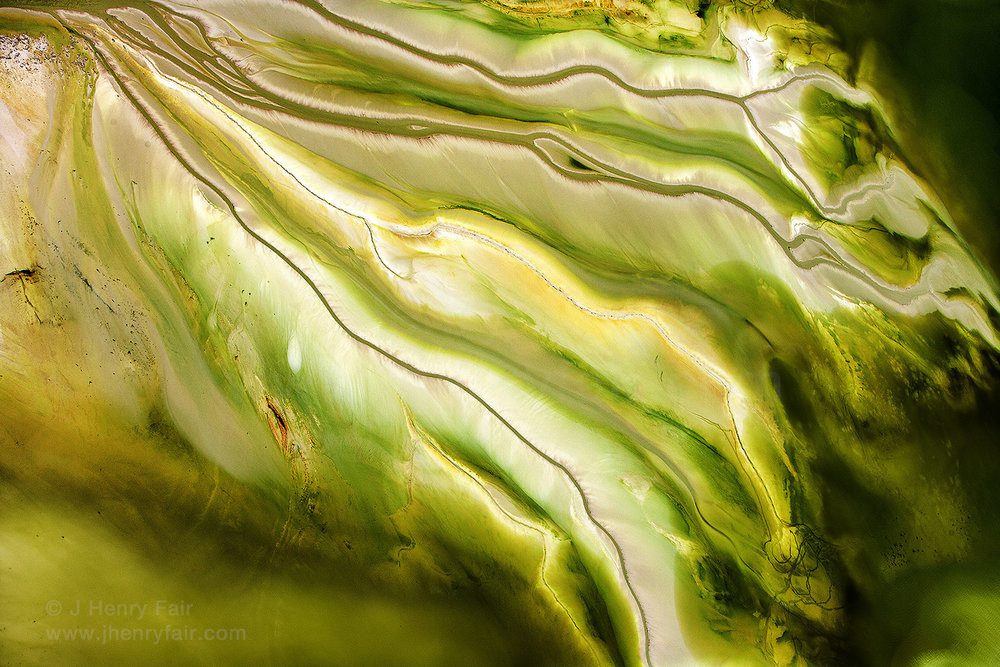
Sam: If it is normal to experience a range of complicated feelings in response to the environmental crisis, why does it seem like some people don’t care? I’m thinking here of “The Myth of Apathy,” an article you wrote for the Ecologist in 2008.
Renée: I feel like I could write the same piece today, in 2022. What’s important is to notice the tendency we have to judge and evaluate people in terms of whether they care enough about what’s happening to the planet. We know enough about human psychology now to understand that one primary way people have for protecting themselves against feeling vulnerable and threatened is precisely by detaching, discounting, and minimizing.
All these responses are very well-known defense mechanisms that help us to feel safe and secure. In my view, if we truly understood that, it would change everything about how we go about engaging people on these issues. I think we’re still holding on to outmoded assumptions and mythologies about climate and environmental communications. We’re still saying “If only you knew, if only you understood, if only you grasped the magnitude of the situation, then you would behave differently, and things would change.” What we know, now more than ever, is that this is actually not the case. We have known this for decades—that information is not enough. It’s the emotional charge that comes with the information that is key. What creates the conditions for people to turn toward the threat and turn toward the reality has a lot to do with the emotional charge, the feelings. What enables people to heal, to engage with trauma, is providing them with a container where they can feel what they feel, which happens in a relational context. That’s what any therapist knows. That’s what anyone who does healing work knows, anyone who has been involved in recovery. It’s what the essence of a sangha is about.
We may not be successful, frankly, at turning things around with the planet, but when you have a container—a community of others who understand your experience, who will not judge but at the same time will hold you accountable—at least you know that you can try to do something. We’ve been stalled out for a long time because people have this tendency to just opt out, to short-circuit, because of the scale and magnitude of the issues. It’s very easy for an individual to say, “OK, clearly, there’s nothing I can do.” And that’s a cognitive prop because there is no me. It’s us. Or as Daniel Siegel, clinical professor of psychiatry, would say, It’s mwe (me plus we). Really, there is no me as a sole individual; that’s just a complete contraction of the mind. In actuality, this is about the human collective and our ability as humans to do something.
Getting back to this whole myth of apathy—which in part comes from people working on climate and the environment who have a lot of frustration, rage, and impatience, because they’re asking “Why are we not moving fast enough?”—if we really take into account what we know about the psychology underlying apathy, then it would change almost 100 percent of everything about how people working on the environment and climate do what they do. I still see a tendency to just push out a lot of information. These days it is more positivity- and solutions-oriented, but it’s still information, like “Here are ten things you can do,” or whatever. We’re still not getting at those conditions that humans need to be in place to turn and face what is hard.
Sam: What you are saying about creating a container for facing hard truths makes me think of the first step of the Principles of Gratitude practices from The Work that Reconnects, which is “coming from gratitude” so that we can create the psychic space to “honor our pain.” Does that align with a psychological perspective?
Renée: Personally, I’ve struggled a bit with the gratitude thing. I mean, I know it’s important, but it doesn’t feel authentic to me to push myself to feel gratitude if I am not feeling it. If I’m in the throes of feeling a lot of sorrow and pain, I will get to the gratitude; but sometimes I need to start with being with the pain and with the experience I’m having. Sometimes I feel like there’s a bit of a “gratitude policing”—if we are not careful, that ends up being just another way to bypass the harder and more complex feelings and experiences. It’s like, no, enough with the gratitude. I know that it’s a very powerful element, I realize it’s a fundamental part of resilience and rewiring our neural pathways, but there’s something that makes my Spidey sense goes off a little bit if gratitude is pushed too hard or used to avoid harder feelings.
In an ideal scenario, we are able to take that energy … and channel it into how we live. How we show up with others. How we can become change agents regardless of our context.
Sam: In an email exchange during the lead-up to this conversation, you wrote that one of the things you do in your work is translate Buddhist ideas and practices for organizations and leaders. What does Buddhism have to offer environmental initiatives that is unique?
Renée: There’s so much to say about that, I don’t even know where to start. To my mind, every single Buddhist teaching that I encounter relates precisely in some way or another to how to live today and confront our ecological crisis. Every single teaching does this. The teaching might be about simple mindfulness. We can start with the foundational teaching of having a practice of presence so that you develop a capacity for staying connected and grounded with oneself, whatever else might be happening. We all need to be leaning into that capacity right now. Buddhist teachings provide a very finely honed methodology that enables us to bring this capacity into our lives and work, whether you identify as a Buddhist or not. Let’s put it this way: if we look at everything that humans need right now to live in our world and in the world to come, it’s all about navigating complex situations, engaging with the world with curiosity and inquiry, being open to new and diverse perspectives without getting triggered, and not falling into an us-versus-them attitude. We need to develop an existential capacity for staying grounded and staying connected, and, yes, for expanding our gratitude, heart, love, compassion, and equanimity.
All of these qualities are the baseline of what’s needed today, and we as humans need to accelerate our evolution in this direction as fast as possible. Buddhist thought and practice seem uniquely situated at this moment in time to serve a really vital function.
Join Renée Lertzman and other leading environmentalists and Buddhist teachers at Tricycle’s second annual Buddhism and Ecology Summit April 17-21.
